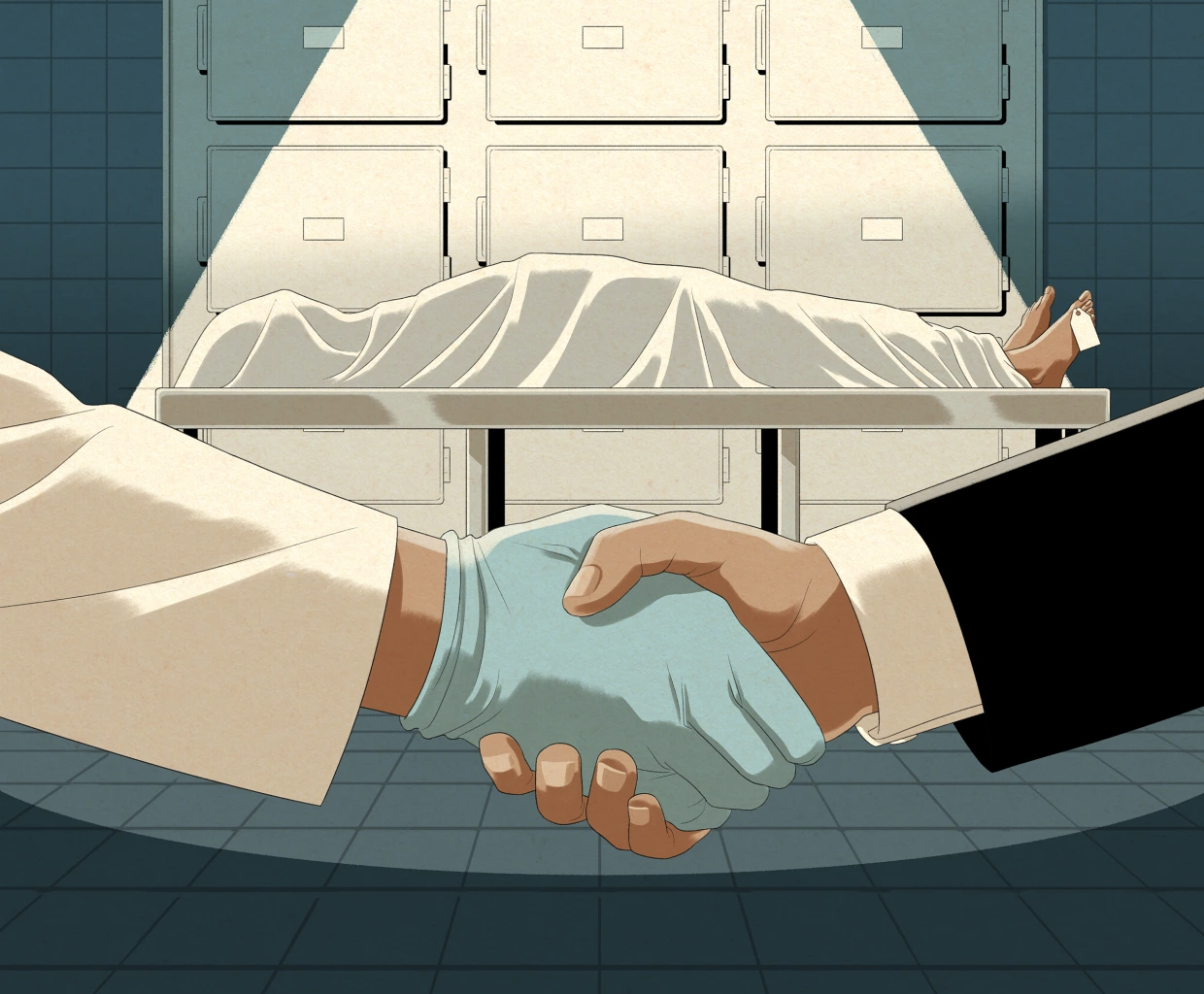This university cut up and sold unclaimed bodies

From NBC News: "Long before his bleak final years, when he struggled with mental illness and lived mostly on the streets, Victor Carl Honey joined the Army, serving honorably for nearly a decade. And so, when his heart gave out and he died alone 30 years later, he was entitled to a burial with military honors. Instead, without his consent or his family’s knowledge, the Dallas County Medical Examiner’s Office gave his body to a state medical school, where it was frozen, cut into pieces and leased out across the country. A Swedish medical device maker paid $341 for access to Honey’s severed right leg to train clinicians to harvest veins using its surgical tool. A medical education company spent $900 to send his torso to Pittsburgh so trainees could practice implanting a spine stimulator. And the U.S. Army paid $210 to use a pair of bones from his skull to educate personnel at a hospital near San Antonio."
A treasure trove of over 20 million collectible baseball cards is finally revealed

From the New York Times: "In a former antique shop off a four-lane highway in rural Virginia, Tim Banazek knelt before a white banker’s box labeled “Autographed Baseballs” that was stashed at the bottom of a steel bookcase. He pulled the first ball out and examined the signature in the fluorescent light. It was Willie Mays’s. Every day, Mr. Banazek unearths new historic treasures from a collection of sports cards that he purchased in 2021 from a quiet hobbyist. But this is not just any assemblage. It is quite possibly the largest private collection of sports cards in the world — and probably by a wide margin. Mr. Banazek estimates that it includes 20 million cards, although other visitors have pegged the number even higher. For comparison, Paul Jones, a man in Idaho who claimed to have the largest private baseball card collection, told a local newspaper in 2020 that his holdings amounted to 2.8 million cards."
She sat on the tail of a fighter plane and accidentally took the ride of her life

From Popular Mechanics: "In 1945, Margaret Horton, a Women's Auxiliary Air Force mechanic, was one of the ground staff at the Royal Air Force’s Hibaldstowe base in England. Her duties included participating in a “Rough Weather Procedure” that required a person to sit atop an airplane’s tail end to prevent it from tipping forward or to the side during high winds, especially while operating on uneven ground. The propeller-powered aircraft were small and light compared to today’s brawny fighter jets, and this human ballast stabilized the planes as they taxied slowly to the takeoff point.One windy day, it was Horton’s turn, so she scrambled on top of the fighter plane, a Supermarine Spitfire. Once it reached takeoff position, she anticipated communicating with the pilot that she was about to hop off. Horton’s first inkling that something was seriously wrong came only moments before it was too late for her to jump off."
Ancient DNA from Easter Island disproves population collapse theory

From Phys.org: "Rapa Nui, also known as Easter Island, is one of the most isolated inhabited places in the world. Although the island, its inhabitants and their rich culture have been extensively studied by archaeologists, anthropologists and geneticists, two key elements of Rapanui history remain controversial. One of these is the theory of population collapse through "ecocide" in the 1600s, thought to be the result of overpopulation and resource mismanagement. According to the theory, a population of over 15,000 Rapanui triggered changes that led to a period of resource scarcity, famine, warfare and even cannibalism, culminating in a catastrophic population collapse. The researchers looked into the genomes of the Ancient Rapanui individuals expecting to find a genetic signature of a population collapse, such as a sudden drop in genetic diversity. But the data did not contain any evidence of a population collapse in the 1600s."
Waking up with a bang? It could be ‘exploding head syndrome’

From The Conversation: "Have you ever been drifting off to sleep, only to be jerked awake by the sound of a bomb going off inside your head? If you have, then you have most likely experienced exploding head syndrome, a mysterious and poorly understood sleep disorder. Exploding head syndrome (EHS) belongs to a family of sleep disorders known as parasomnias. Other parasomnias include sleep paralysis and hypnic jerks – the cause of that unpleasant feeling of falling we sometimes experience when drifting off to sleep. EHS has been known to medical professionals since at least 1876, and apparently the French philosopher and scientist René Descartes experienced it. Despite that, we know surprisingly little about the condition. A typical episode is characterised by the experience of an abrupt loud noise or a sense of an explosion inside the head that occurs during the transition from wakefulness to sleep."
This elderly man can perform physical feats a man half his age can't do
Incredible 🤯
— Science girl (@gunsnrosesgirl3) September 16, 2024
Wait for it
pic.twitter.com/PsOw5eij0Q
Acknowledgements: I find a lot of these links myself, but I also get some from other newsletters that I rely on as "serendipity engines," such as The Morning News from Rosecrans Baldwin and Andrew Womack, Jodi Ettenberg's Curious About Everything, Dan Lewis's Now I Know, Robert Cottrell and Caroline Crampton's The Browser, Clive Thompson's Linkfest, Noah Brier and Colin Nagy's Why Is This Interesting, Maria Popova's The Marginalian, Sheehan Quirke AKA The Cultural Tutor, the Smithsonian magazine, and JSTOR Daily. If you come across something interesting that you think should be included here, please feel free to email me at mathew @ mathewingram dot com



